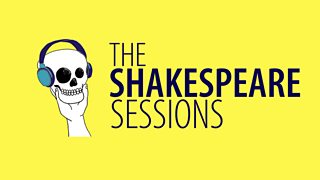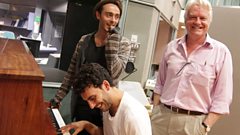
The Churchill Barriers
by Emma Spurgin Hussey
Orkney, 1944, and clerk George finds common ground with Italian POW Giorgio as they build the famous sea defences.
Pianist ..... Neil Brand
Director: David Hunter.
Last on
More episodes
Next
Clip
-
![]()
"I'm far from home, so I'm writing to you in my head..."
Duration: 01:12
A note from the writer, Emma Spurgin Hussey

For some reason, as we travelled through the snow that day, Grandad and I started talking about his wartime experiences. I’d heard, over the years, bits about his war - endless potato-peeling in Devon, defusing unexploded bombs, and some time spent in Orkney. I suggested that, as far as such things go, Grandad’s had been a fairly ‘lucky’ war. He said luck had nothing to do with it, and explained how he’d come to spend World War II the way he had. I’d known nothing about this and – it turned out – nor had anyone else except Nanna. It was one of those revelations that make everything you thought you knew shift, just a little bit, on its axis. It would be a spoiler to tell you what we talked about – you’ll have to listen to the play....
Over time I questioned Grandad further. He was extremely patient – especially so since he was nearly 90 when I began my interrogations, or ‘interviews’, as I like to think of them - actually I think he quite enjoyed our talks. Grandad felt he’d gained nothing but a little discipline from his time in the army. He told about another ‘lucky’ soldier who’d offered to teach him to play the organ in Kirkwall Cathedral, but then got redeployed before he could make good his promise. (Grandad was an able pianist, and a good singer.) I thought it would be nice to fictionalise his story, giving ‘him’ a friend – and some music.
It was Grandad’s time on Orkney that fascinated me most. Because of his clerical skills, he’d been sent to Burray to do administrative work at a POW camp for Italian prisoners. The prisoners were made to work on the Churchill Barriers, a series of causeways linking some of the islands and acting as defensive blockades protecting the anchorage at Scapa Flow. In their free time, the Italians were also creating a chapel on the neighbouring island of Lamb Holm and this chapel still stands, a beautiful fragile symbol of hope and peace.
My local theatre, Hall for Cornwall, invited me to take part in a course which challenged: ‘write about a culture that is not your own’. I thought about Grandad’s time on Orkney – lots of cultures that weren’t mine: island life; being in the army; war; being Italian; being a man… I became interested in using Grandad’s story as the start point of a radio play; he said he was perfectly happy, and that his story was now my material to shape any way I wanted, giving me freedom to play fast and loose with facts. He read an early draft, and gave me some feedback but, sadly, he’s no longer with us – he died two years ago at the age of 94. He’d left a final surprise, however: after his funeral, I learned that Grandad had written a hymn. And it’s this hymn tune we hear, played by brilliant Neil Brand, at the end of the play.
Credits
| Role | Contributor |
|---|---|
| George | David Dawson |
| Giorgio | Cesare Taurasi |
| Q | David Hounslow |
| Captain Swain | Mark Edel-Hunt |
| Major Buckland | Stephen Critchlow |
| Italian | Chris Pavlo |
| Director | David Hunter |
| Writer | Emma Spurgin Hussey |
Broadcasts
- Mon 10 Aug 2015 14:15���˿��� Radio 4
- Thu 27 Jul 2017 14:15���˿��� Radio 4 FM




